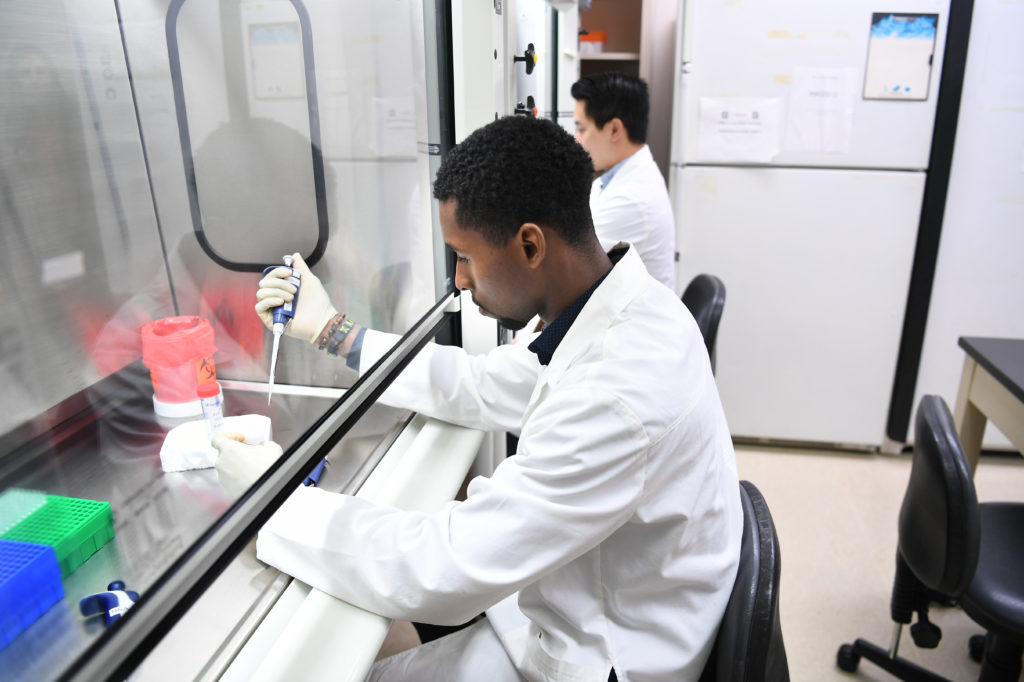For more than thirty years, the Saint John’s Cancer Institute has been a pioneer in the fight against cancer. Characterized by a culture of multidisciplinary collaboration and innovation, the Saint John’s Cancer Institute is a leader in translational research and is dedicated to accelerating new therapeutic discoveries to serve the clinical needs of patients.
The urology cancer team is a deeply skilled, dedicated team, focused on finding new and more effective ways to prevent, detect, treat and defeat cancers of the urinary system in both men and women. Much of the research is designed to improve detection of cancer and understand how our therapies can work better, and minimize side effects of treatment.

Current Translational Research and Medicine Highlights
- Immunotherapy for high risk-non-muscle invasive urinary bladder cancer.
- Instillation of local chemotherapy in the kidneys of patients with urothelial cancer (cancers that typically occurs in the urinary system) in the kidneys, who are not surgical candidates or only have one kidney.
- Cell free DNA detection as a screening and early detection tool for all cancers.
- A circulating tumor cell (CTC) detection wire that uses special anti-bodies to catch CTC’s as they travel in the blood stream. This device will also help screen and detect heart attack, stroke and sepsis.
- Use of the Provenge vaccine to activate a patient’s own immune system to treat men with low risk prostate cancer, who qualify for active surveillance to possibly cure their cancer with minimal side effects.
- Novel investigational agent Talazoparib in patients with metastatic prostate cancer and specific cancer mutations.
- Use of a powerful new anti-androgen called Apalutamide – to possibly convert “immune cold” aggressive prostate cancers to immune sensitive prostate cancer and treat men with Pembro prior to prostatectomy.
- Study the use of placental allografts, which deliver growth factors and stem cells, during radical prostatectomy on nerves that sit near the prostate to help men quickly recover bladder control and sexual function after a radical prostatectomy.
- In collaboration with Las Vegas medical oncologist, Nicholas Vogelzang, MD, Vice Chair of the Southwest Oncology Group (SWOG), we are studying the value of cytoreductive prostatectomy in men with metastatic prostate cancer. This was presented at the American Urological Association (AUA) Annual Conference in San Francisco, May, 2018.
- Novel investigational agent Rucaparib in the treatment of advanced bladder cancer: Study activated June 2018.

